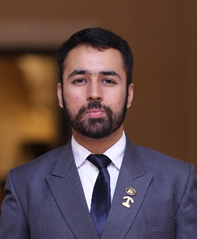The Houthis have a complex relationship with Yemen’s Sunni Muslims. The movement has discriminated against Sunnis, but also recruited and allied with them. Under the leadership of Hussein Badreddin al-Houthis, the group emerged as an opposition to former Yemeni president Ali Abdullah Saleh, whom they charged with massive financial corruption and criticized for being backed by Saudi Arabia and the United States.
The Houthi movement attracts its Zaidi-Shia followers in Yemen by promoting regional political-religious issues in its media, including the overarching U.S. Israeli conspiracy theory and Arab “collusion”. In 2003, the Houthis’ raised a slogan, “God is great, death to the U.S, death to Israel, curse the Jews, and victory for Islam”, and it became the group’s trademark. Houthis officials, however, have rejected the literal interpretation of the slogan. Iran is widely accused of backing the Houthis, a Zaydi Shiite movement that has been fighting Yemen’s Sunni-majority government since 2004. The Houthis took control of the Yemeni capital Sanaa in September 2014 and continued on towards Aden, Yemen’s largest city. In response to Houthi advances, Saudi Arabia and other Arab states launched a military campaign in March 2015.
Recently, The Houthi armed group has fired artillery and ballistic missiles indiscriminately into populated areas of Yemen’s Marib governorate resulting in civilian casualties, including women and children, and causing a new wave of civilian displacement. And now Houthi rebel attack on the Saudi Arabian town of Jizan resulted in two casualties and seven injured. The Houthi–Saudi Arabian conflict is an ongoing armed conflict between the Royal Saudi Armed Forces and Yemeni Houthi forces that has been taking place in the Arabian Peninsula, including the southern Saudi regions of Asir, Jizan, and Najran, and northern Yemeni governorates of Saada, Al Jawf, and Hajjah since the onset of the Saudi Arabian-led intervention in Yemen in 2015. On December 7, 2021, Reuters reported that the Saudi-led coalition bombed military targets in the capital Sanaa after the Iran-aligned Houthis launched ballistic missiles and armed drones into Saudi Arabia.
What is happening in the conflict now?
As the war has dragged on, Houthis have stepped up the boldness of their attacks on Saudi Arabia. Using drones and missiles, the Houthis have launched attacks on Saudi airports, oil facilities and military sites.
While Houthi attacks have failed to cause massive devastation, they have been enough to rattle global oil markets. Houthi attacks on Saudi Arabia have more than doubled this year compared to last year. CSIS records 78 Houthi attacks per month this year on Saudi Arabia, compared with 38 a month in 2020.
In Yemen, there is much criticism of the Saudi-led coalition’s attacks for targeting civilians in one of the world’s poorest countries. More than 80% of the population of 30 million requires food assistance. Estimates on the number of fatalities caused by the conflict vary widely, though at least some 130,000 have been killed over the course of the conflict. By contrast, the UN estimates the conflict will have claimed 377,000 by the end of the year, both through the direct and indirect consequences of war, such as disease and starvation.

Research Associate, Pakistan House



